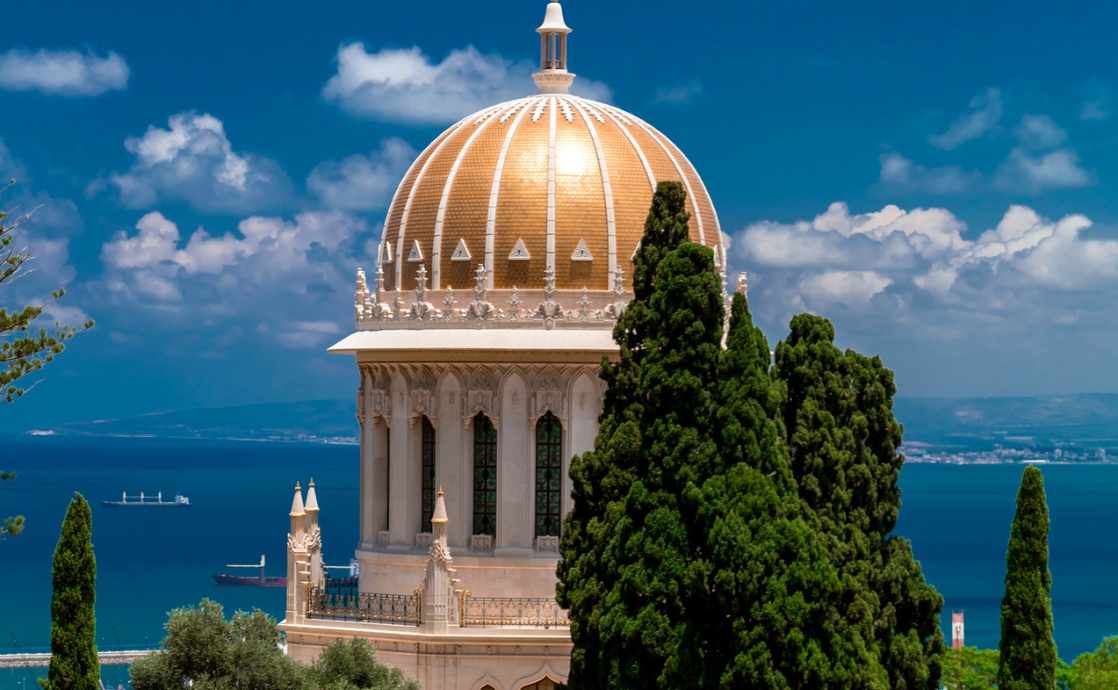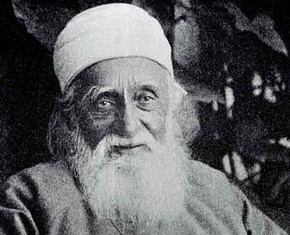The views expressed in our content reflect individual perspectives and do not represent the authoritative views of the Baha'i Faith.
The precursor of the Baha’i Faith – the Babi Faith – began in May of 1844, when a prophetic herald named Ali-Muhammad, known as The Bab, proclaimed his revolutionary new religion.
At that moment, Baha’is believe, a fresh cycle of human enlightenment arrived.
The Bab – a title, pronounced bōb, which means “The Gate” – initially inspired the inception of his new revelation in Shiraz, Persia, and his followers became known as Babis. Much like John the Baptist heralded the coming of Christ in an earlier time, the Bab brought a message of individual spirituality and an unfolding of oneness, unity, and social progress, as exemplified by this passage from his writings:
Become as true brethren in the one and indivisible religion of God, free from distinction, for verily God desireth that your hearts should become mirrors unto your brethren in the Faith, so that ye find yourselves reflected in them, and they in you. This is the true Path of God, the Almighty, and He is indeed watchful over your actions.
Also, like Jesus, the Bab was eventually executed for his beliefs. The Babi Faith created a furor in Persian society. Tens of thousands soon joined the Babi Faith.
The first eighteen people to spontaneously recognize the Bab’s mission came to be known as “The Letters of the Living.” One of these first followers – a woman called Tahirih, also known as Qurratu’l-Ayn, a leading spiritual and poetic woman in Persian society – became an outspoken advocate of the Bab’s new Faith, despite living in a time and place that maximized the oppression of women, who wore veils to keep them hidden from men’s’ sight and were not allowed to even converse with males outside their families.
During one Babi conference, Tahirih demonstrated the casting-off of the old traditions and humanity’s entrance into a new era of enlightenment by taking off her veil during the conference and revealing her face. This caused a violent reaction from some of the men there, unprepared to accept the emancipation of women as part of the social progress the Bab advocated. Baha’u’llah defended her actions and gave her the title Tahirih, which means “the pure one” in Arabic. Eventually executed by the Persian government along with most of the Babi leaders, Tahirih still ranks as one of Persia’s finest and most celebrated poets. Before she was killed, she is reported to have said, “You may kill me if you like, but you will never stop the emancipation of women.”
The Babi Faith rapidly attracted people from every societal sector: wealthy merchants as well as tradesmen, religious scholars and illiterates, people who hungered for an inner spiritual awakening, and those who thirsted for social revolution, as well.
Soon Baha’u’llah became a proponent of the Babi movement at the age of 27, after reading some of the writings of the Bab. Although he sought no leadership role in the community, Baha’u’llah soon became widely recognized as one of its most distinguished supporters, a recognition that placed his life in danger. The Shah issued a death warrant against Baha’u’llah, even though his only crime was following a religion opposed by the state. The warrant expired, however, upon the sudden death of the Shah in 1848.
Becoming a Babi wasn’t easy – it meant putting everything at risk: your life, your family, your property, the good graces of friends and relatives. Some clergymen preached from their pulpits that to murder a Babi and steal his property were acts of righteousness. Many from the largely uneducated masses sought their moment of glory in what became the blood sport of Babi murder.
Baha’u’llah wrote “Religious fanaticism and hatred are a world-devouring fire, whose violence none can quench.” In a few short years, thousands of Babi men, women, and children were tortured and killed. The government officials offered the Babis no protection, and even actively encouraged the mob.
Despotically ruled by a shared power system of the Shah and the Islamic clergy, Persia’s twin governing forces had virtually unchecked power over human life in the 19th century. The brutal executions they ordered were so cruel and perverse that many Western journalists and diplomats, revolted by the public massacres of the Babis, resigned their positions and left the country. Others remained in their homes to avoid witnessing horrors such as men being beheaded, flayed, drawn and quartered, having molten lead poured down their throats or lit candles placed into carved-out holes of their flesh, or being shod like horses and forced to run through the streets.
Despite the reign of terror, the Babi movement swept through Persia like wildfire, attracting nobles and commoners alike, despite the powers of the state and the mobs of fundamentalist fanatics who violently tried to stamp out this fire anywhere they found it. As Baha’u’llah sat, imprisoned and chained in the Black Pit in Tehran, many of the other Babi leaders died terrible deaths. The Babi Faith, facing powerful opposition and religious genocide, finally was forced underground. In prison, Baha’u’llah felt called to revive and direct this persecuted movement:
One night, in a dream, these exalted words were heard on every side: “Verily, We shall render Thee victorious by Thyself and by Thy Pen. Grieve Thou not for that which hath befallen Thee, neither be Thou afraid, for Thou art in safety. Ere long will God raise up the treasures of the earth — men who will aid Thee …”
















Comments
Sign in or create an account
Continue with Googleor